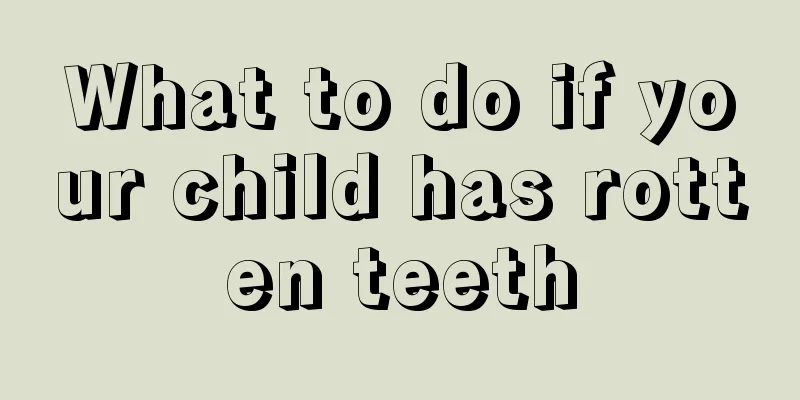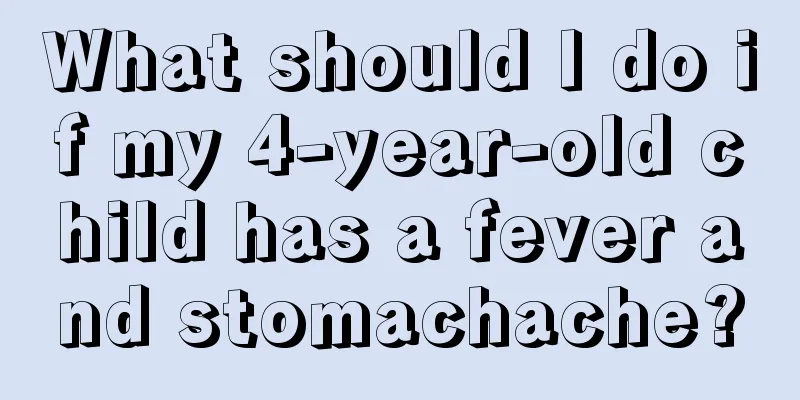What are the dangers of dehydration in babies?

|
Diarrhea is a very common disease in life. In most cases, it is caused by eating something dirty. In life, not only adults suffer from diarrhea, but even some babies are prone to diarrhea. When diarrhea becomes more severe, dehydration can occur, which can be really unbearable. So, what are the dangers of dehydration in babies? What are the dangers of dehydration in babies? Mild dehydration: The diarrhea is not very severe, and it manifests as mild dehydration. The main symptoms include dry tongue and lips, slightly reduced urine volume, and weak spirit. If it can be corrected in time, it will not cause much harm to the human body. Generally, when a child reaches moderate dehydration, doctors and parents should pay close attention to it. When oral medication cannot solve the problem, fluids should be given. Severe dehydration: As people's awareness of diarrhea continues to increase, and they seek medical treatment promptly when they have diarrhea, severe diarrhea is relatively rare. Severe dehydration is caused by the loss of a large amount of body fluids, more than 10-15%, which can damage other organs, kidneys, central nervous system, and in severe cases can cause shock. Severe dehydration is very harmful to children's health. Therefore, we must be extremely careful to prevent severe dehydration, which can endanger the child's life. Symptoms of dehydration Signs of dehydration: sunken eyes, decreased urination or dry diapers, no tears when the child cries, dry or sticky mucus membranes (lining of the mouth or tongue), lethargy (less activity than normal), irritability (more crying, fussing), etc. Experts advise parents to contact a doctor as soon as possible if their child has the following symptoms: dry mouth, no tears when the child cries, no urine output in 4-6 hours, sunken eyes, vomiting for more than 24 hours or vomitus that is always green, and a fever over 39 degrees Celsius. The doctor will perform a thorough history and physical examination to determine the cause of dehydration and to identify the cause of severe dehydration. The doctor will look for evidence of dehydration and signs of illness, so parents should pay attention to their children's physical changes and convey these to the doctor so that the doctor can better analyze the condition. If your baby is dehydrated, you must take immediate action to prevent further dehydration. If you think your baby is seriously dehydrated, take him to the emergency room immediately; he may need fluids to be treated. If you are concerned that your baby is dehydrated, it is best to take him to the hospital for treatment. The doctor may want to examine your baby to make sure that nothing is wrong with him. If your doctor thinks your baby is only slightly dehydrated, he or she will instruct you to give your baby a special fluid called oral rehydration salts to replace the water and salt (also known as electrolytes) he or she has lost. |
<<: What should I do if my child has eczema?
>>: What are the dangers of spanking a child on the back?
Recommend
What to do if your baby burps after feeding
In daily life, many young mothers will temporaril...
The baby's bones always make noises
Since babies' bodies are not fully developed ...
How to reduce fever caused by acute tonsillitis in children
Children are particularly susceptible to diseases...
What should I do if my child has trouble sleeping? 5 Tips to Help
Sleep is a big deal for children, because its qua...
High testosterone levels in children
If a child has too high a level of male hormone, ...
Baby chicken skin
Chicken skin is actually a very troublesome hered...
How to check your child's intelligence
Although many parents hope that their children ar...
What is the reason for a six-month-old baby to sweat?
Six-month-old babies sweating makes many new moth...
How to treat lymph nodes in babies?
Many babies have problems with their bodies, so t...
Is children's allergic cough contagious?
Allergic cough in children is a common respirator...
What are the symptoms of a frightened baby?
Some babies show symptoms of fright, which seriou...
Is bone marrow puncture painful for children?
Bone marrow puncture is a common method to find t...
How to prevent gastroesophageal reflux in premature infants
What is the phenomenon of gastroesophageal reflux...
How to treat anemia in a one and a half year old baby
If a one and a half year old baby has anemia, it ...
What should I do if my child has brain maldevelopment?
If a child's brain is poorly developed, paren...









